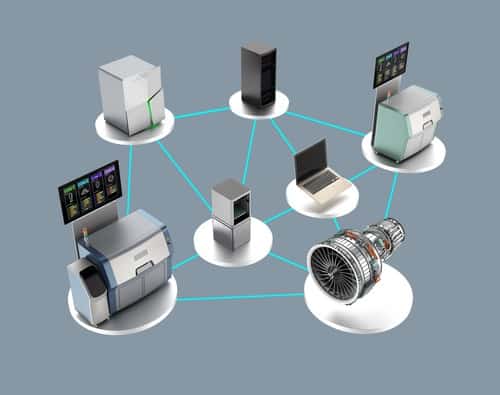New Industrial Internet Consortium testbed is designed to accelerate machine learning for predictive maintenance in high-volume manufacturing environments

According to the IIC, the testbed is designed to explore machine-learning techniques and evaluate algorithmic approaches for time-critical predictive maintenance. The knowledge gleaned from the testbed will provide insight that the IIC says will enable companies to move away from traditional preventative maintenance to predictive maintenance, which minimizes unplanned downtime and optimizes system operation. This would ultimately help manufacturers increase availability, improve energy efficiency and extend the lifespan of high-volume CNC manufacturing production systems.
IIC says its testbeds are where the innovation and opportunities of the Industrial Internet lie. New technologies, applications, products, services, processes can be initiated and tested to viability before coming to market.
Smart factories need advanced analytics
“The smart factory of the future will require advanced analytics, like those this testbed aims to provide, to identify system degradation before system failure,” said IIC Executive Director Richard Mark Soley. “This type of machine learning and predictive maintenance could extend beyond the manufacturing floor to have a broader impact to other industrial applications.”
[ Related: IIC’s Soley on Benefits, Challenges of the Industrial IoT ]
“Downtime costs some manufacturers as much as $22k per minute,” said Plethora IIoT Team Leader Javier Diaz. “Therefore, unexpected failures are one of the main players in maintenance costs because of their negative impact due to reactive and unplanned maintenance action. Being able to predict system degradation before failure has a strong positive impact on machine availability: increasing productivity and decreasing downtime, breakdowns and maintenance costs.”
Xilinx will provide the platforms for sensor fusion, real-time, high-performance processing, and machine learning from the edge to the cloud, according to Dan Isaacs, director of Corporate Strategic Marketing and Market Development for IIoT and Machine Learning at Xilinx. “The combination of these highly configurable capabilities drives the intelligence of the smart factory.”
How other IIC members support the testbed
IIC member companies including Bosch, Microsoft, National Instruments, RTI, System View, GlobalSign, Aicas, Thingswise, Titanium Industrial Security and iVeia will provide technologies to enable the following, according to the IIC: factory automation, operations technology and IT security, edge-to-cloud machine learning and analytics, time-sensitive networking, data acquisition, Smart sensor technology, design implementation, embedded programmable SoC technology and secure authentication.
[ Related: IIC Tests Approaches for Saving Energy in Cities ]
Testbeds are more than “routine product testing,” according to the IIC. More than working with one company’s products or proprietary technologies, they are built to demonstrate interoperability within an ecosystem and within the approved roadmap.


























